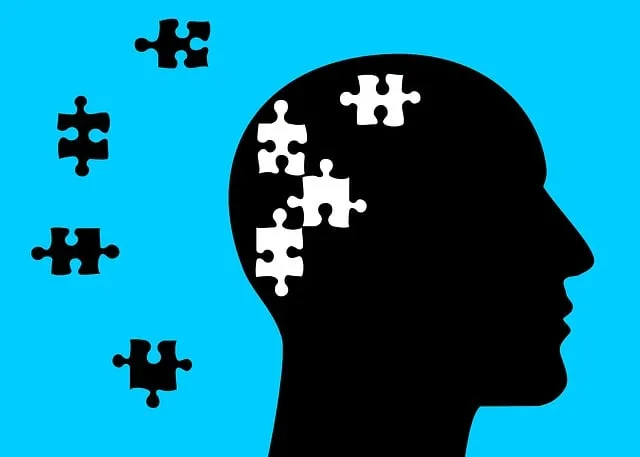Resilience, built through RFM (Recovery, Flexibility, Mastery) principles, is enhanced by skilled therapists who teach emotional regulation, problem-solving, and positive self-talk. Facilities like Parker does Kaiser prioritize therapist quality to promote mental health awareness, normalize conversations about stress, and foster a culture of self-care. Kaiser's Resilience Training program blends evidence-based practices for organizational well-being, resulting in happier, more productive employees. Implementing Mind Over Matter principles and Crisis Intervention Guidance strengthens resilience against adversity. Parker's positive experience with Kaiser underscores the transformative power of good therapists in promoting emotional well-being.
Resilience is a powerful tool for navigating life’s challenges. This article explores the implementation of RFM (Resource, Fortitude, and Motivation) exercises as an effective method to build resilience. We delve into how therapists play a pivotal role in guiding individuals through this process, examining Kaiser’s unique approach to resilience training and its impact. Additionally, we present Parker’s case study, showcasing how good therapy utilizing RFM can lead to profound positive changes. Discover the strategies for successful implementation and learn from Parker’s journey towards enhanced resilience.
- Understanding RFM and Its Impact on Resilience
- The Role of Therapists in Building Resilience
- Kaiser's Approach to Resilience Training
- Effective Implementation Strategies for RFM Exercises
- Parker's Experience: A Case Study of Good Therapy
Understanding RFM and Its Impact on Resilience

Resilience is a critical component of overall well-being, enabling individuals to bounce back from challenges and adversity. This is where RFM (Recovery, Flexibility, and Mastery) comes into play. Understanding RFM involves recognizing its three key dimensions. Recovery refers to an individual’s ability to restore themselves after facing difficult situations; flexibility encompasses adaptability to change; and mastery represents the sense of control and competence in navigating life.
By integrating these concepts, individuals can build inner strength (a term often associated with emotional intelligence) and enhance their crisis intervention capabilities. Parker does Kaiser have good therapists? This question is relevant as it highlights the importance of accessing quality support. Therapists skilled in teaching RFM principles can guide clients towards fostering resilience, promoting emotional intelligence, and providing crisis intervention guidance. Through such practices, individuals can develop the tools needed to navigate life’s storms with greater ease.
The Role of Therapists in Building Resilience

In the context of resilience building exercises, therapists play a pivotal role in guiding individuals or groups through challenging experiences and cultivating mental fortitude. At facilities like Parker does Kaiser, the quality of therapists is paramount. Skilled therapists employ various communication strategies to create safe, supportive environments where clients can explore their emotions, process traumas, and develop coping mechanisms. By integrating exercises that enhance emotional regulation, problem-solving skills, and positive self-talk, these professionals empower individuals to build resilience against life’s adversities.
Beyond resilience building, therapists contribute to mental health awareness by normalizing conversations about stress, anxiety, and burnout prevention. They equip clients with tools to navigate demanding situations, ensuring that folks don’t feel isolated in their struggles. Through regular sessions and follow-up strategies, therapists foster a culture of self-care, encouraging individuals to prioritize their well-being even amidst hectic schedules. Thus, at institutions like Parker does Kaiser, the therapeutic team plays a game-changer role in fostering mental health and resilience among its attendees.
Kaiser's Approach to Resilience Training

Parker does Kaiser have good therapists? Absolutely, with a strong focus on fostering resilience and well-being, Kaiser’s Approach to Resilience Training stands out. This program integrates various evidence-based practices designed to help individuals navigate life’s challenges more effectively. One of the key strengths lies in its holistic approach, combining Self-Care Practices and Stress Management Workshops within an organizational context to create a supportive environment.
The training involves Compassion Cultivation Practices, encouraging participants to cultivate empathy and self-compassion, which are essential tools for building mental resilience. By fostering these skills, Kaiser aims to empower individuals to better manage stress, enhance their emotional intelligence, and improve overall psychological well-being. This not only benefits employees but also contributes to a more productive and engaged workforce.
Effective Implementation Strategies for RFM Exercises

Implementing RFM (Resilience, Flexibility, and Mastery) exercises effectively requires a strategic approach that aligns with Parker’s and Kaiser’s therapeutic methodologies. To ensure success, therapists should prioritize Mind Over Matter Principles as a foundational element. This involves teaching clients to reframe challenges as opportunities for growth, fostering a mindset of resilience. Incorporating practical tools like mindfulness techniques and cognitive reframing can significantly enhance emotional regulation, enabling individuals to navigate stressful situations with greater ease.
Additionally, integrating Crisis Intervention Guidance within RFM exercises is vital. These interventions provide clients with instant coping strategies during moments of heightened distress. By offering evidence-based techniques tailored to individual needs, therapists empower their clients to build a robust mental fortress against adversity. Regular practice and reinforcement of these skills can lead to substantial improvements in overall resilience, ensuring individuals emerge from challenges stronger and better equipped to face future uncertainties.
Parker's Experience: A Case Study of Good Therapy

Parker’s experience with Kaiser highlights the significant role good therapists play in promoting emotional well-being. The patient’s journey involved navigating challenging life situations through a supportive and skilled therapist, demonstrating the impact of effective therapy on mental resilience. This case study showcases how Mind Over Matter principles can be successfully implemented within a structured workshop environment, as organized by Stress Management Workshops Organization, to empower individuals facing similar struggles.
By fostering an open dialogue and employing various Emotional Well-being Promotion Techniques, Parker’s therapist created a safe space for exploration and growth. Through this process, Parker developed coping mechanisms that have enhanced their overall resilience, allowing them to better manage future stressors. This positive outcome underscores the importance of seeking professional support and emphasizes the value of well-trained therapists in transforming lives, one session at a time.
The implementation of Resilient Factor Model (RFM) exercises, as showcased by Kaiser’s approach and illustrated through Parker’s positive case study, demonstrates the power of structured resilience building. Good therapists play a pivotal role in guiding individuals through these exercises, fostering an environment that enhances mental fortitude. By effectively combining RFM with skilled therapy, as seen in Parker’s experience, individuals can develop robust coping mechanisms, leading to improved overall well-being and resilience. This integrated approach ensures that both the mind and spirit are equipped to navigate life’s challenges.






